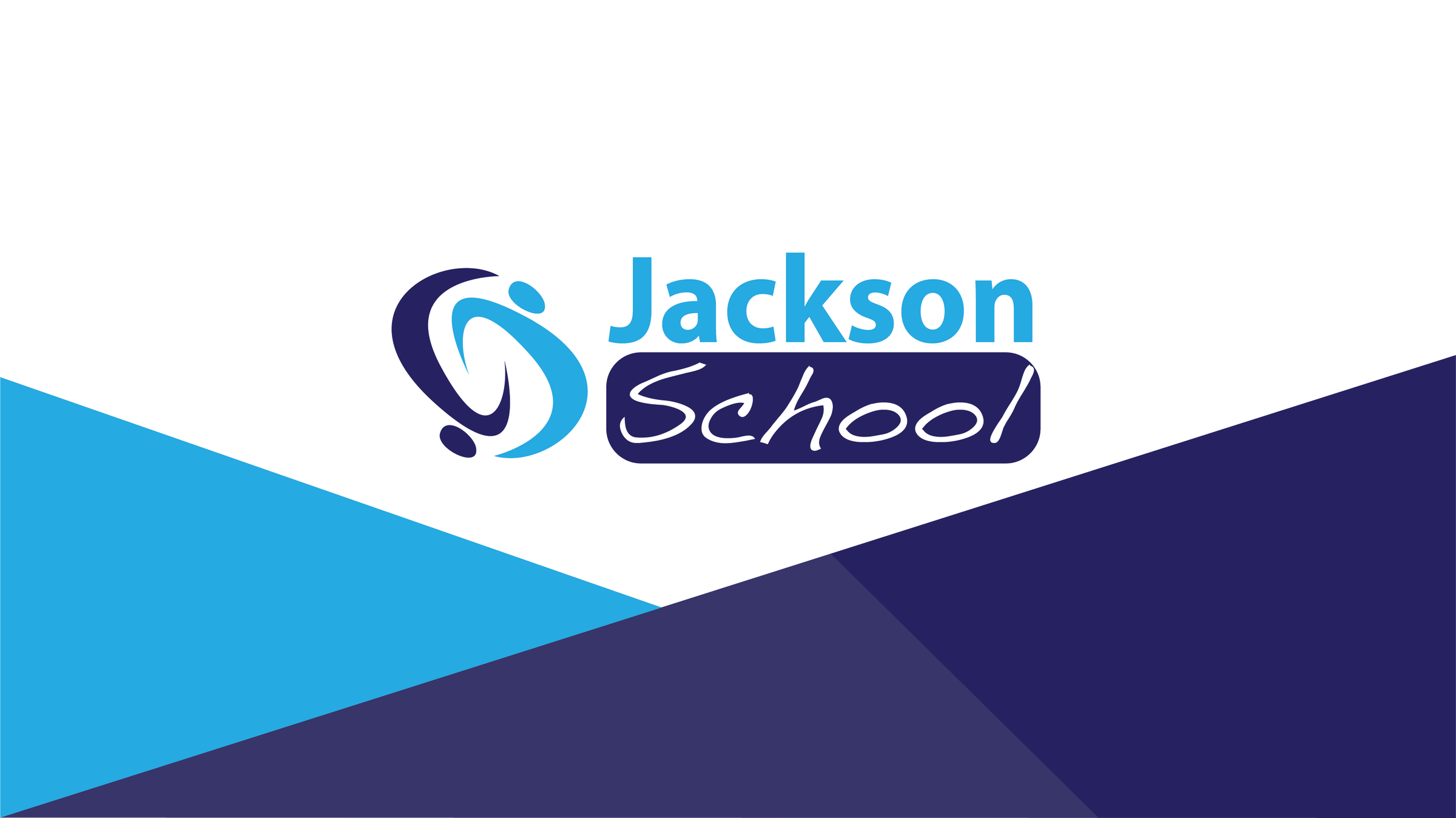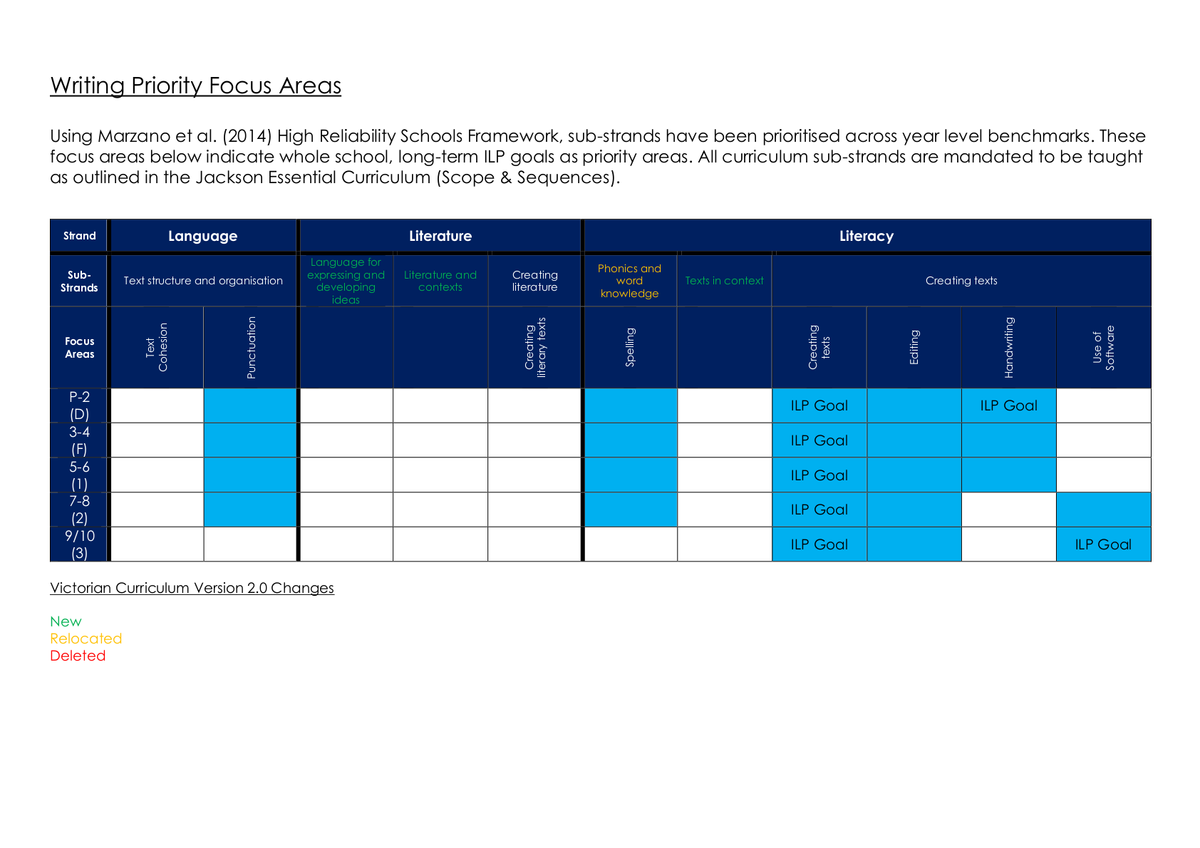Essential Curriculum

English (Version 2.0)
In 2024, Jackson School will transition to Victorian Curriculum 2.0 for full delivery in 2025. The English Curriculum (Version 2.0) is now organised by strands (Language, Literature, Literacy) instead of language modes (Reading and Viewing. Writing, Speaking and Listening). However, for assessment and reporting purposes against the Achievement Standards these remain structured around the language modes. Within each language mode, the content descriptions are grouped into strands and sub-strands as shown below. Content descriptions are further broken down into progression statements (ILP Short Term Goals) in the Jackson Goal Banks.
| Strand | Language | Literature | Literacy |
| Sub-strands | Language for interacting with others | Literature and contexts | Interacting with others |
| Text structure and organisation | Engaging with and responding to literature | Phonic and word knowledge (F–6) or Word knowledge (7–10) | |
| Language for expressing and developing ideas | Examining literature | Building fluency and making meaning (F–6) | |
| Creating literature | Texts in context | ||
| Analysing, interpreting and evaluating | |||
| Creating texts |
Prioritised Essential Learnings
Mathematics (Version 2.0)
In 2024, Jackson School will transition to Victorian Curriculum 2.0 for full delivery in 2025. The Mathematics Curriculum (Version 2.0) is organised by 6 interrelated strands (Number, Algebra, Measurement, Space, Statistics and Probability). For assessment and reporting purposes during the transitions from the Victorian Curriculum 1.0 to Victorian Curriculum 2.0, these strands will remain coupled into 3 associated strands (Number & Algebra, Measurement & Geometry/Space, Statistics & Probability). Each strand is organised by sub-strands and threads as shown below. Sub-strands group content descriptions under an appropriate concept, to provide both a focus and a clear sequence for the development of related concepts and skills within strands and across levels. Content descriptions are further broken down into progression statements (ILP short Term Goals) in the Jackson Goal Banks.
Proficiency in Mathematics
The proficiencies of Understanding, Fluency, Reasoning and Problem-solving are embedded in all 6 strands and further the development of increasingly sophisticated knowledge and understanding of mathematical concepts, fluency in representations and procedures, and sound mathematical reasoning and problem-solving skills. Proficiency in mathematics enables students to respond to familiar and unfamiliar situations by employing mathematical processes to solve problems efficiently and to make informed decisions. Proficiency in mathematics also enables students to reflect on and evaluate approaches, and verify that answers and results are reasonable in the context.
Mathematical processes
Mathematical processes refer to the thinking, reasoning, communicating, problem-solving and investigation skills involved in working mathematically. Opportunities to learn process skills have been embedded across the strands, building in sophistication across the levels. Mathematical problem-solving and investigation draws on the processes of mathematical modelling, computational and algorithmic thinking, statistical investigation, probability experiments and simulations.
Independent Learning
Personal and Social Capability and Critical and Creative Thinking.
Jackson Staff, please login to the Jackson Portal for Scope & Sequence documents and Goal Banks for all learning areas.









